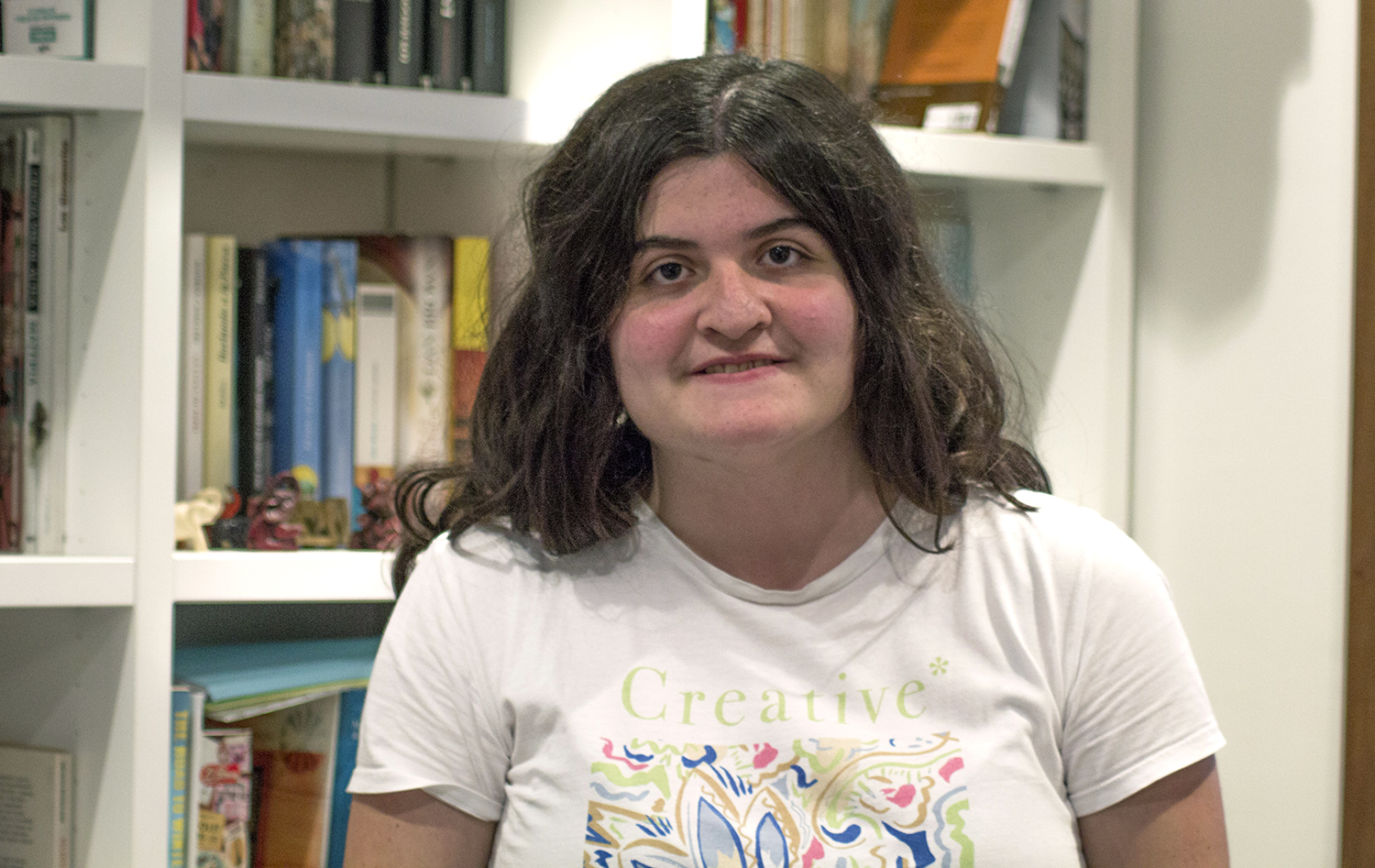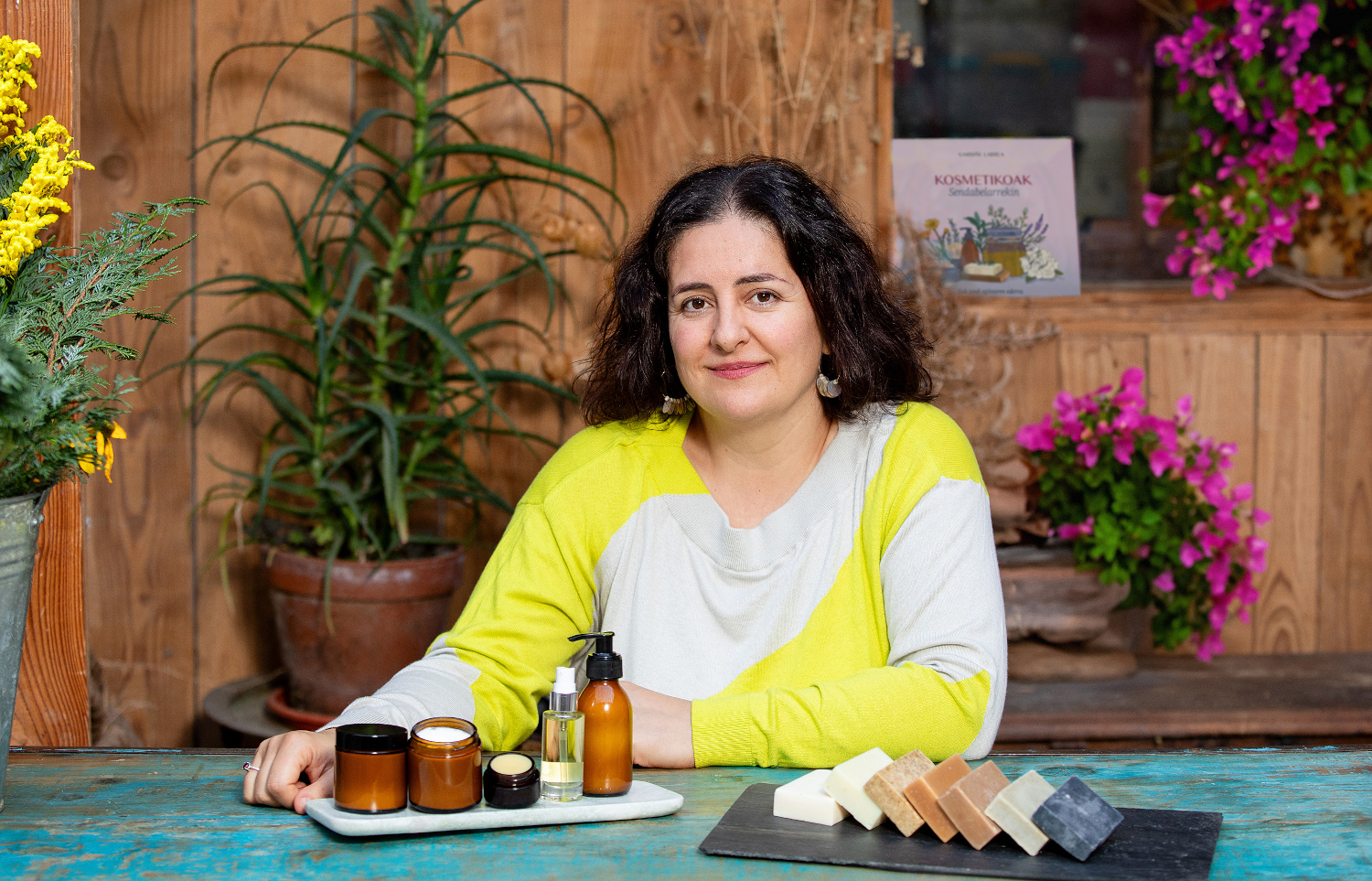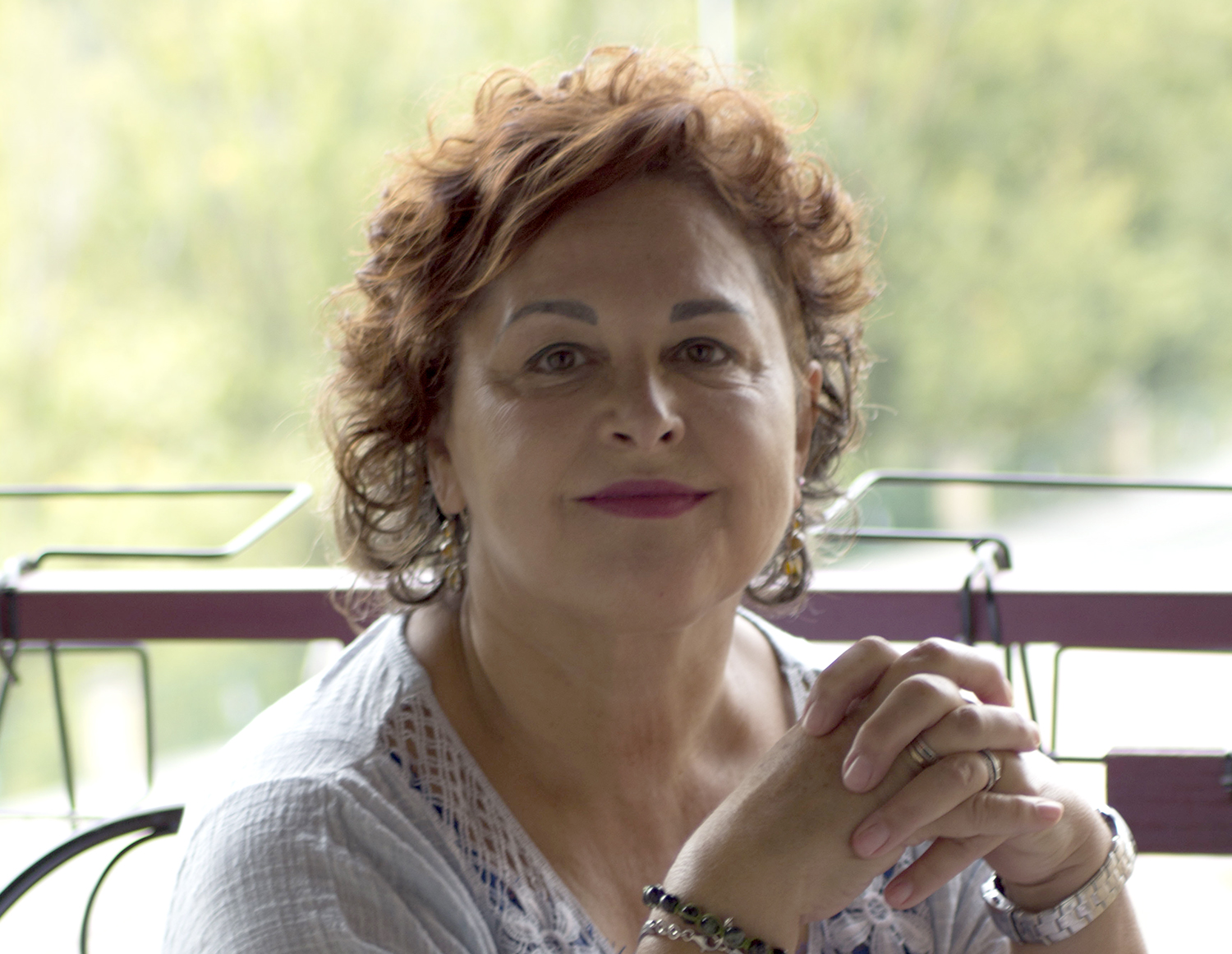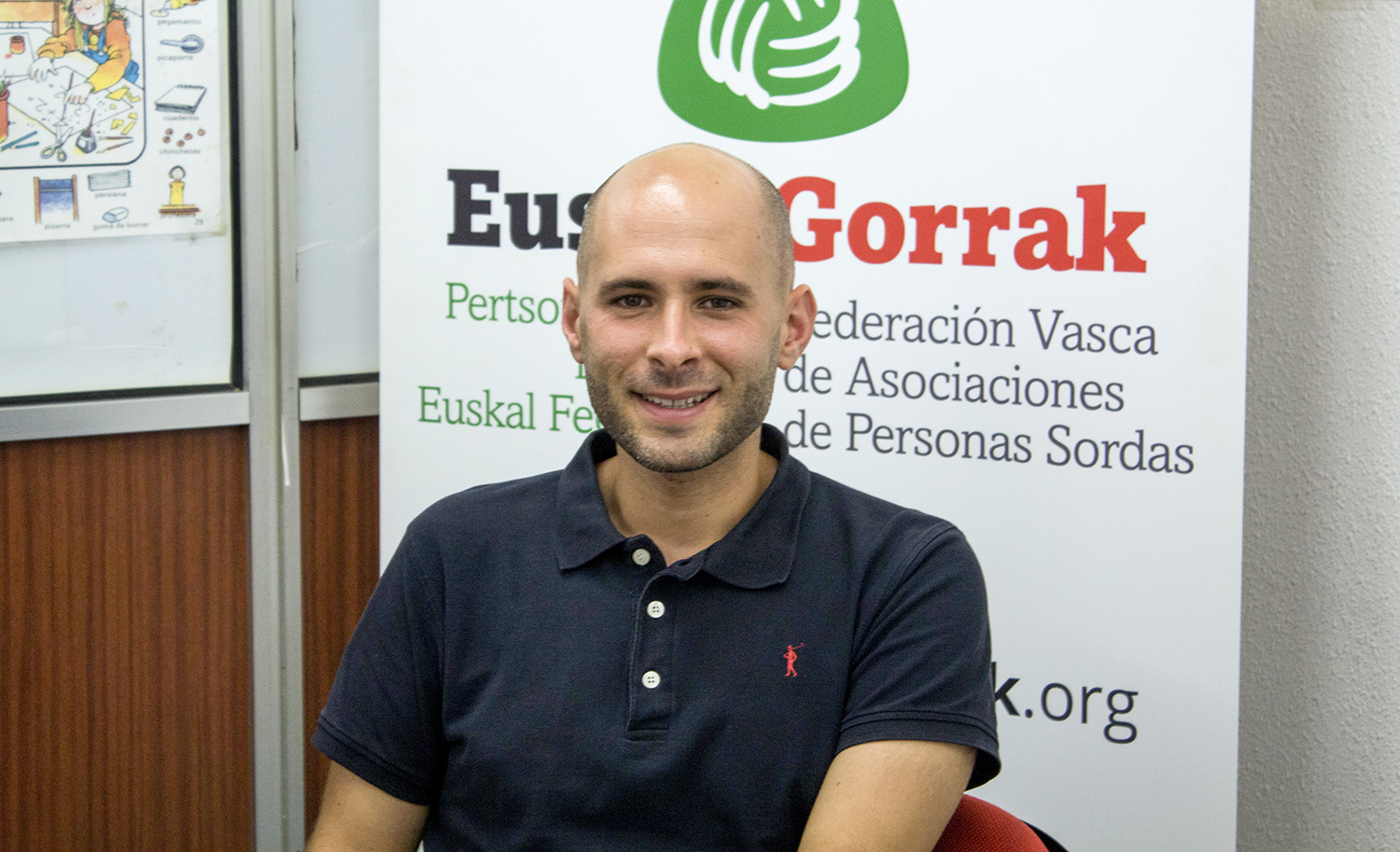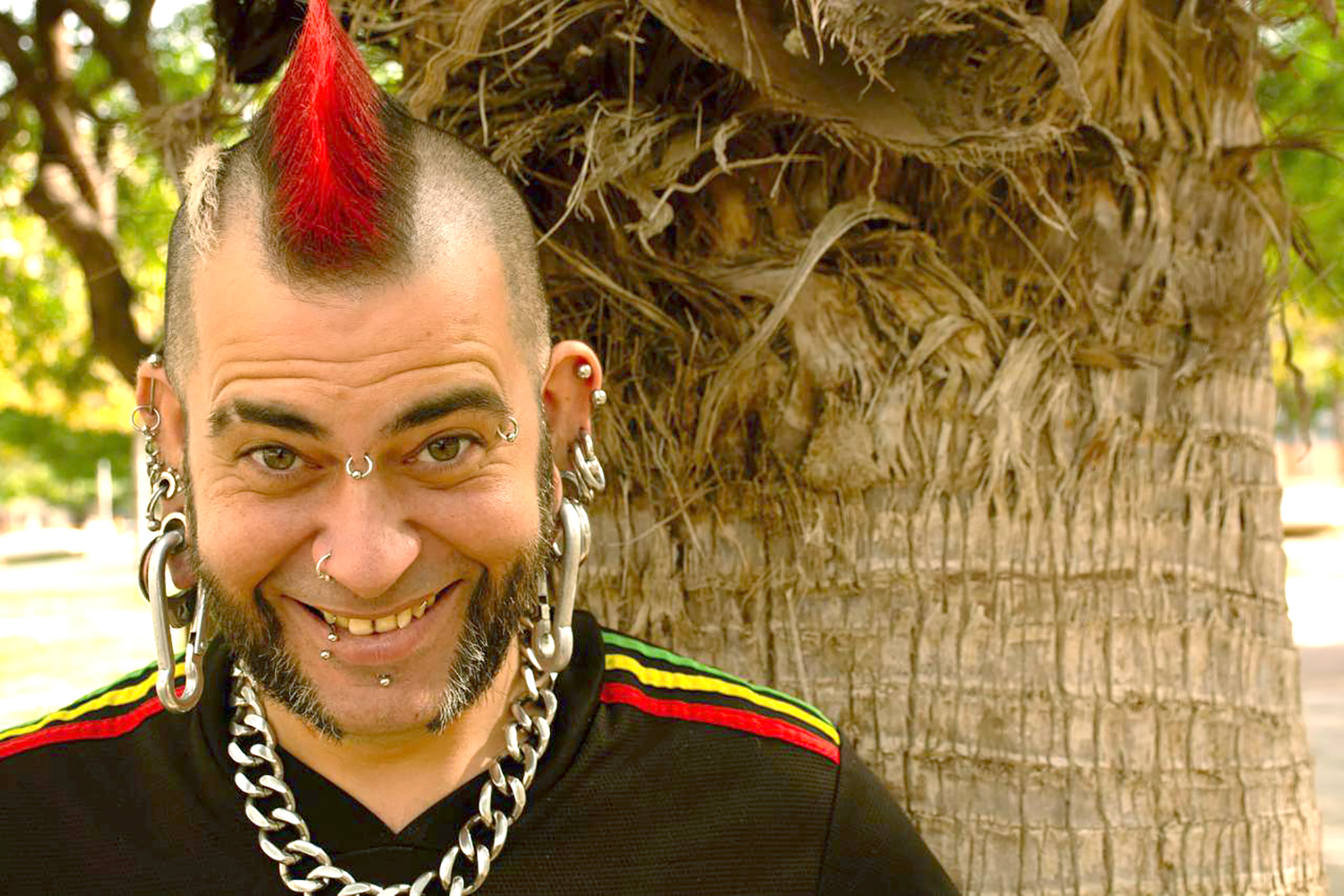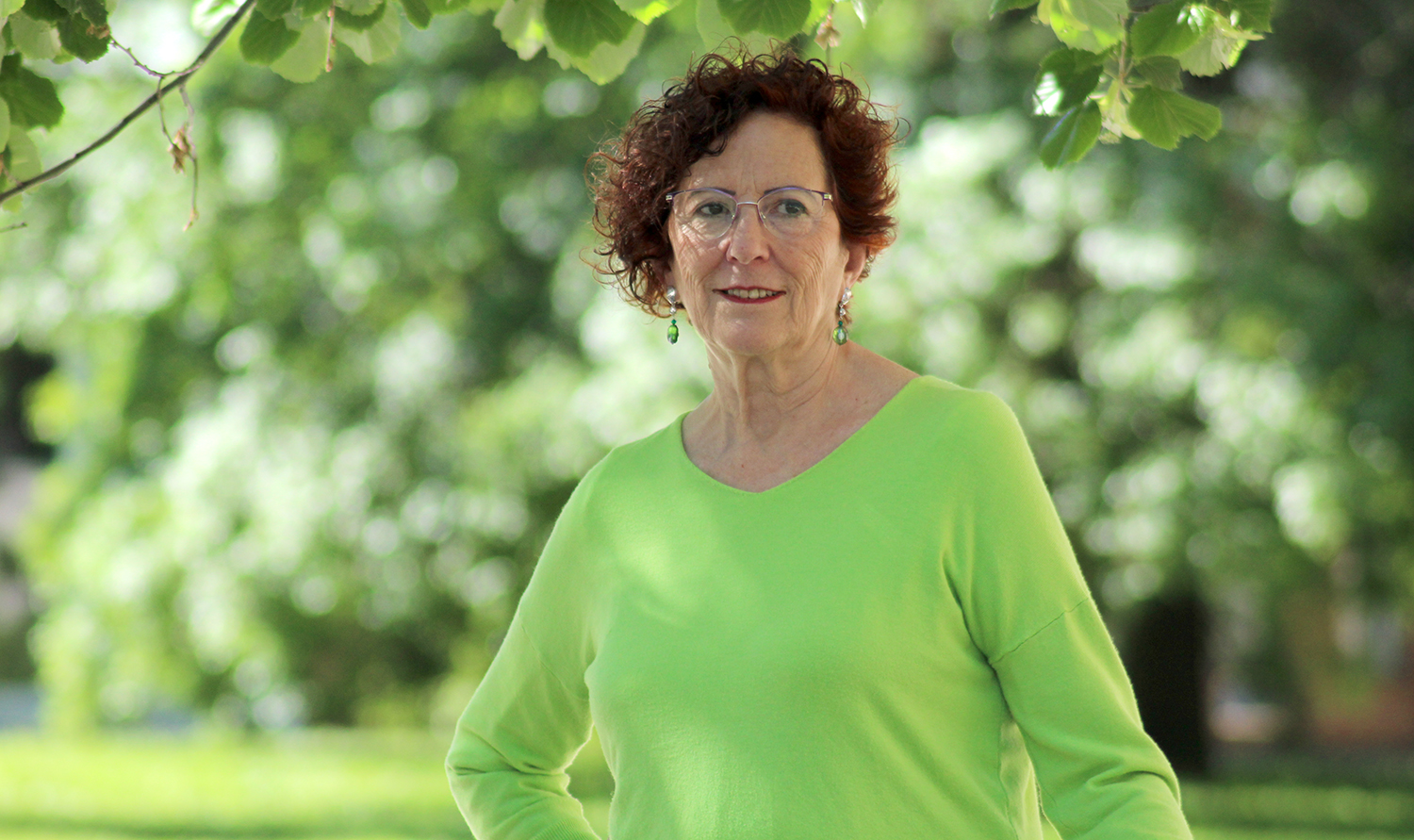"The slogan 'Love your mind' is the trap of the system"
- The gaztetxe Torreberri de Zumaia has been completed on the second Friday after the Christmas attracted by the poster “Big Talk: for the fat, against gordophobia and for the fat”. It is not usual for the listener to be classified so directly, or to meet a speaker who speaks so easily about obesity. He is Mijo Lizarzaburu, and from village to village he explains that the issue of obesity is a political issue. The ideal would be to enjoy the talk, but, just in case, here's a detail.

Although it is heard a little, it still seems that it has not taken root in society, but you make it clear: “Obesity is political.” Why? In
these times when left-wing machismo is being consolidated, it seems that the only thing that is political is capitalism, and all the other struggles, like anti-racism and feminism, are subject to capitalism. The only thing that manages this sub-raigo is to reinforce the homogenization of the working class. This homogenisation must be broken if we do not want control of the movements on the left to be left to the white men on the left. So, yes, obesity is political. The majority conception of society determines what the body is direct or normal, for the benefit of patriarchy, capitalism and racism: the body must be, among many other things, heterosexual and white, also thin, beautiful and functional. Then comes the lodi activism, breaking the normality of these bodies, to create an anti-patriarchal and anti-capitalist identity from our bodies, from a sick, ugly and non-productive body. Magda Piñeiro fighting for the health, morals and gordophobic aesthetics he has called tripartite.
At a time when we are constantly getting messages saying that you have to love yourself, you said that it is almost impossible if you are fat. Where do the two ideas collide?
We are in the 21st century, in the age of mobile and image, in the empire of selfi. In this context, the thick body is a wrong body: it is a body that has failed in the thinness project. That is, “love your mind” is the trap of the system. How are you going to fall in love if the whole medical, family, sexual affective realm tells you that your body is wrong? Loving oneself is important, without a doubt, but for the fat ones it is necessary to fight and change in a collective and organized way that message that our body is wrong. The system can't cope with one. You won't get happiness by buying a cup of be happy, taking anxiolytics and continuing to work.
In search of the ideal body, many women live in the nightmares of endless diets, delving into the idea of “I am not this, and I will be when I have less X kilos.” What's behind that?
“Thinness brings happiness.” The system has developed unsustainable promises like this. Miraculous diets (losing 20 kilos in 5 minutes), believing that foods produced very far from Euskal Herria are healthier than those here, sports that are presented to us in English (Crossfit, body-building, cardio fitness). Fat people produce a kind of dysphoria: we feel foreign in our heads and we tend to relate to the ideal thin body of the future instead of identifying ourselves with the thick body. This idea of a slim future determines our whole present. If now I do sport and as clean, I am happy to be well on the way to the future I, but if I get on the opposite path, I will feel the guilt. That perfection of the future, of course, is not affordable, but we will give our whole lives to achieve it. Why? Because it's not about thinness, it's about social control of our bodies. The goods are not thin, that is in the background. What is emerging is the will to tame women.
The heteropatriarchate has established control over the bodies of women, and the capitalist system has also been able to make a space among the fattest: The XXL shows women “normally” in the media, in advertising, among others.
The thing is, capitalism is increasingly capable of creating concrete products, and in recent years, they've seen an opportunity in the thicker bodies. It is also stated that participants in this market will be minority in access to them. This minority falls into the category of “good thickness” and will have to fulfill better than a thin woman the mandates of femininity: makeup, hair removal, thin clothing, that is, they will be curvy, not amorphous masses like the others. With this, a distinction is made between obesity classes: good fat versus bad. It is good that they will continue to meet the needs of capitalism. They're not going to break the rule, they're going to extend it. The dissemination of the norm grants obese people a certain individual privilege, which makes them feel part of the system. “You can save yourself even if it’s fat” is the new promise. But the goal cannot be part of the hegemonic group, but to break the norm that generates the same hegemony.
You have called for “Lodi’s Activism” to reverse the situation: reverse the reproaches that have historically been insults and identify them as obese. Are we facing a new empowerment?
I'm afraid to say that. I would say that we are in times of powerlessness. In other words, gordophobia is strong: direct aggressions, exclusion from the scope of health, work, sexual and affective, cultural invisibility and moral judgments for the breach of the self-care order are still in place and I think they will be more over time.
Let me take as an example the time of the pandemic: when we were all confined at home, people were more concerned about not getting fat than about cuts in rights and health. That is, the system activates various mechanisms to adapt gordophobia to all times. It will be strengthened more and more.
Faced with this, a strong, collective and organized lodi activism is needed. Lodi's activism is empowerment, but understood as resistance. That is, if there were no gordophobia, there would be no lodi activism. Lodi's activism can be found in many places, but I understand it together with anti-capitalist transfeminism, because it is necessary to articulate the policies of marginal bodies in a unified way to confront the fat capitalist heteropatriarched racist.












